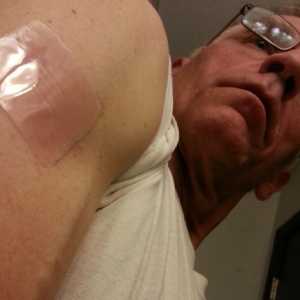MedicalResearch.com Interview with:
 Paul Aveyard
Professor of Behavioural Medicine
Paul Aveyard
Professor of Behavioural Medicine
Nuffield Department of Primary Care Health Sciences
University of Oxford
Radcliffe Primary Care Building
Radcliffe Observatory Quarter
Oxford
MedicalResearch.com: What is the background for this study? What are the main findings?
Response: Tobacco addiction occurs because of repeated pairings of the act and sensation of smoking with binding of nicotine in the midbrain leading to release of dopamine in the nucleus accumbens. These repeated pairings create associative learning and, when brain nicotine concentrations fall, this produces a compulsion to keep using tobacco. In theory, blocking the actions of nicotine released while smoking ought to reverse this learning. One way to do this is to use a nicotine patch which provides a steady state high concentration of nicotine that desensitises the nicotinic receptors in the midbrain, making them unresponsive to nicotine from a smoked cigarette. This is the theory behind nicotine preloading.
The clinical trial evidence that preloading works is equivocal, with some trials suggesting a very large therapeutic effect and others no benefit at all. In the light of both the promise and the uncertainty, we aimed to complete the largest trial to date of nicotine preloading to examine its effectiveness, safety, and tolerability.
(more…)


